10 Fruits to Avoid in Your Diet And 10 Nutritious Picks to Eat More Often
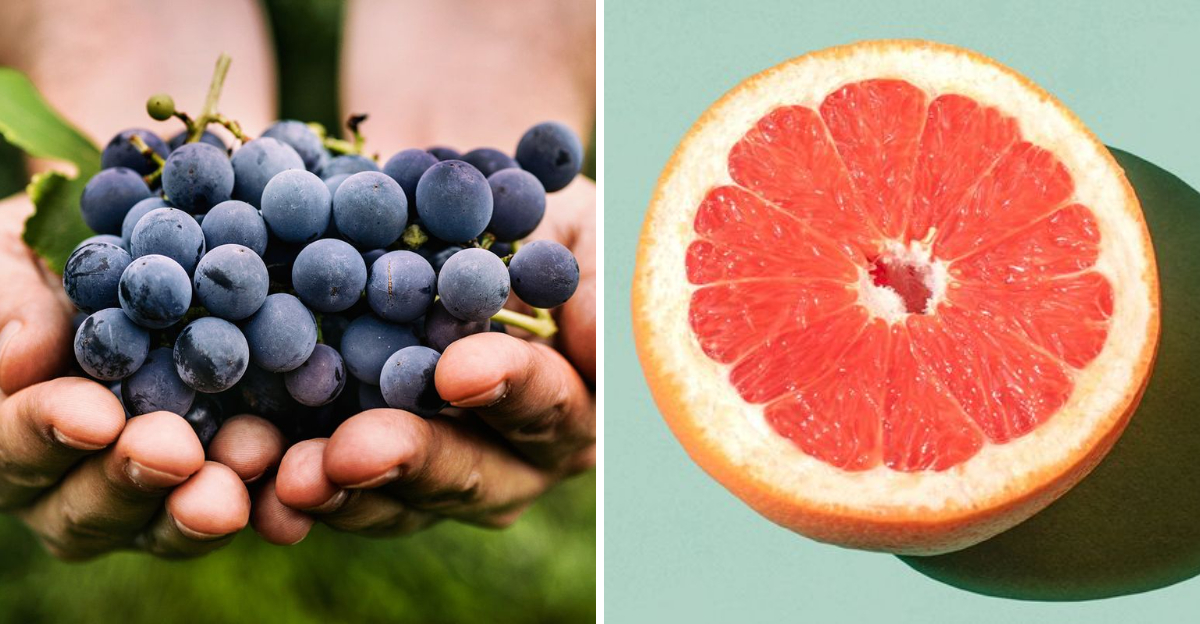
Fruits are a staple in many diets, celebrated for their sweetness and nutritional benefits. However, not all fruits are created equal when it comes to their impact on health. Some fruits, despite their appeal, can be high in sugars or low in essential nutrients, making them less ideal for regular consumption. On the other hand, certain fruits are nutritional powerhouses, offering a wealth of vitamins, fiber, and antioxidants that support overall wellness. This article explores ten fruits to be cautious about in your diet and ten nutritious options you might want to consider eating more often.
1. Grapes

Tiny and sweet, grapes are a delight to the taste buds but pose a risk for overindulgence. They are easy to eat in large quantities, leading to a significant sugar intake. A couple of handfuls can quickly turn into a sugar overload. While they do offer some vitamins and hydration, their sugar content is something to be mindful of. Grapes are best enjoyed in moderation, perhaps mixed with other fruits in a salad to balance their sweetness. This can provide a more controlled portion and prevent the temptation to consume too many at once.
2. Bananas

Bananas, with their convenient packaging and natural sweetness, are a favorite snack for many. However, they are not low in carbohydrates. For those managing blood sugar levels or aiming to lose weight, bananas—especially ripe ones—might not be the best choice. Their high sugar and calorie content can work against dietary goals. That said, they do provide potassium and vitamin C, which are beneficial. If bananas are a must, consider pairing them with a source of protein or fat, like yogurt or nuts, to slow sugar absorption.
3. Mango

Mangoes are like edible sunshine, bursting with flavor and sweetness. Yet, they rank high in sugar content, making them a fruit to enjoy sparingly. While they offer vitamin A and fiber, the sugar level can be a concern, especially for those watching their intake. A slice or two might be enough to satisfy a sweet tooth. Incorporating mango into a balanced meal or using it as a natural sweetener in small amounts can help manage its impact. Remember, moderation is key to enjoying this tropical delight without overindulgence.
4. Pineapple

Pineapple is a tropical favorite, known for its sweet and tangy flavor. However, it is also high in sugar and relatively low in fiber, which means it can cause a quick spike in blood sugar levels. Enjoying pineapple in small quantities is advisable, perhaps as a topping on a dish where its sweetness is spread out. Its vitamin C content is a plus, but balance is essential. Pairing pineapple with protein or healthy fats can mitigate its sugar effects. This can turn a potentially problematic fruit into a more manageable treat.
5. Cherries

Cherries are delightful, both visually and taste-wise, but they pack a punch when it comes to natural sugars. It’s easy to lose count while consuming these bite-sized fruits. Despite their sugar content, cherries do offer antioxidants and anti-inflammatory properties. Enjoying them in moderation is key. Consider adding cherries to breakfast cereals or yogurt to control portions while still reaping some benefits. This way, their sweetness complements other flavors without overwhelming the dish or your diet objectives.
6. Dried fruit

Dried fruits, such as raisins, dates, and apricots, may seem like a healthy snack, but they are concentrated sources of sugar. During the drying process, the water content is reduced, leaving behind a sugar-dense fruit that can quickly lead to overconsumption. Even versions labeled as ‘no sugar added’ pose a challenge due to their natural sugar concentration. Incorporating dried fruits sparingly into meals, like salads or baked goods, can add flavor without excessive sugar. It’s a balancing act to enjoy the benefits without the drawbacks.
7. Fruit juice
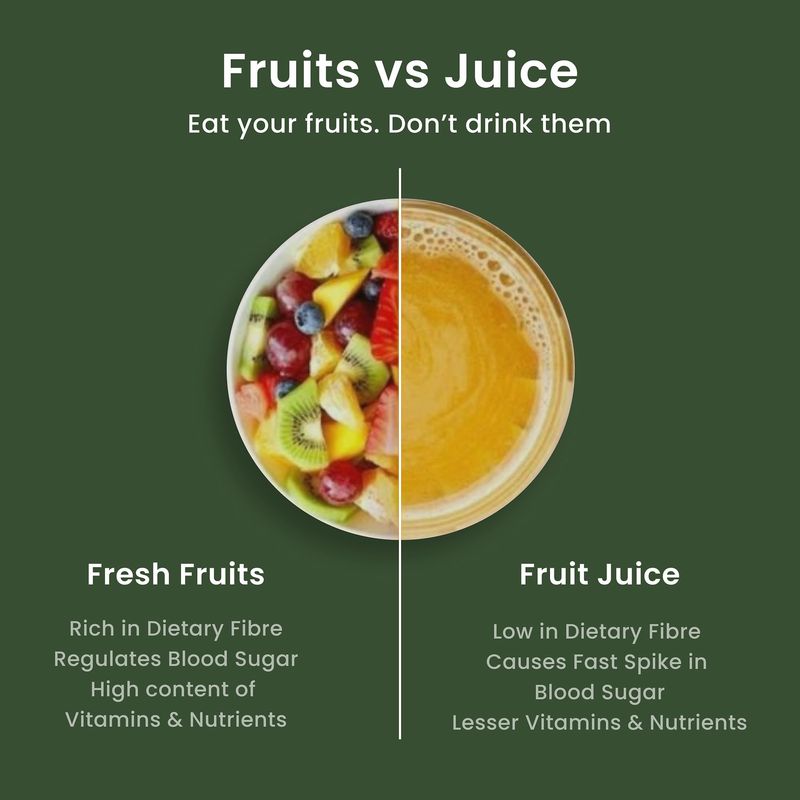
While fruit juices are often marketed as healthy, they lack the fiber found in whole fruits. This absence makes them akin to sugary drinks, elevating blood sugar levels without the benefits of fiber to slow down the absorption. Even 100% fruit juice is no exception. It’s wise to limit consumption and opt for whole fruits instead, where you can benefit from the natural fiber. If juice is preferred, dilute it with water to reduce sugar intake, making it a more refreshing and less sugar-heavy choice.
8. Watermelon
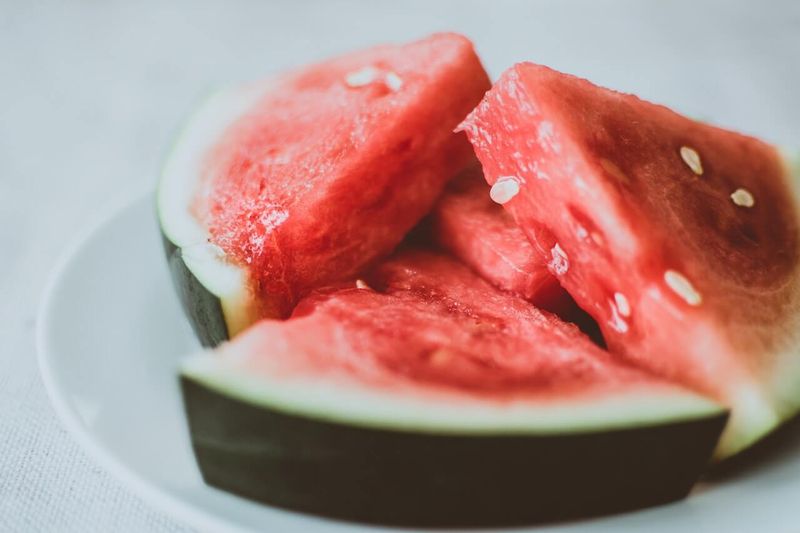
Watermelon is the quintessential summer fruit, loved for its refreshing and hydrating qualities. However, its high glycemic index means it can cause a rapid spike in blood sugar levels. While it’s low in calories, those watching their blood sugar might need to consume it carefully. Pairing watermelon with a protein, such as cheese, can help moderate its effects. This way, you can enjoy its cool, refreshing taste without worrying about sugar spikes. Small, controlled servings are best to savor its benefits.
9. Lychee
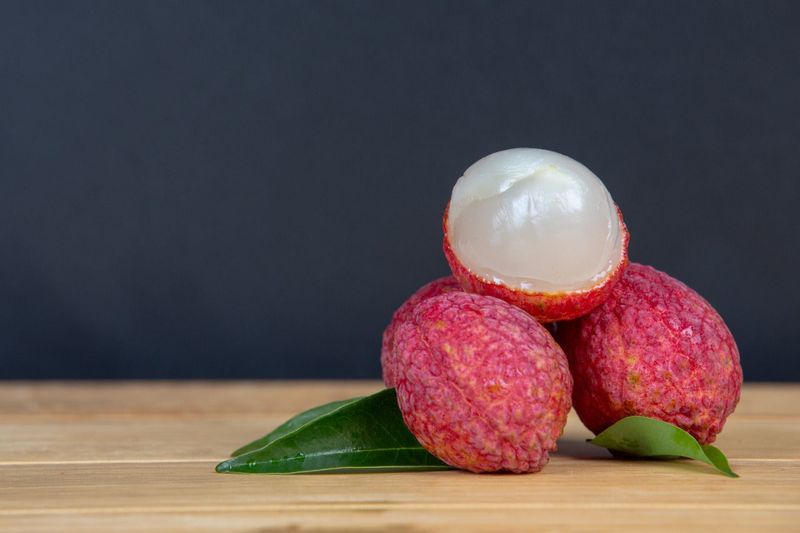
Lychees, with their floral sweetness, are a treat often enjoyed in small quantities, but their sugar content is surprisingly high. These tiny fruits can accumulate quickly into a sugary snack if not eaten mindfully. While they do provide vitamin C, their sugar level means moderation is key. Enjoy lychees occasionally, perhaps as a refreshing addition to a fruit salad. This allows for controlled portions while still experiencing their unique taste. Lychees offer a burst of flavor best appreciated in smaller doses.
10. Canned fruit in syrup

Canned fruits in syrup are often mistaken for healthy options due to their ‘fruit’ label. However, the syrup is essentially liquid sugar, turning the fruit into a dessert. Choosing canned fruits packed in water or their own juice is a healthier alternative. This way, you still get the vitamins and fiber without the excess sugar. It’s about making smarter choices at the grocery store to reduce unnecessary sugar intake. Opting for fresh or frozen fruit when possible is always the best option for health-conscious consumers.
11. Blueberries
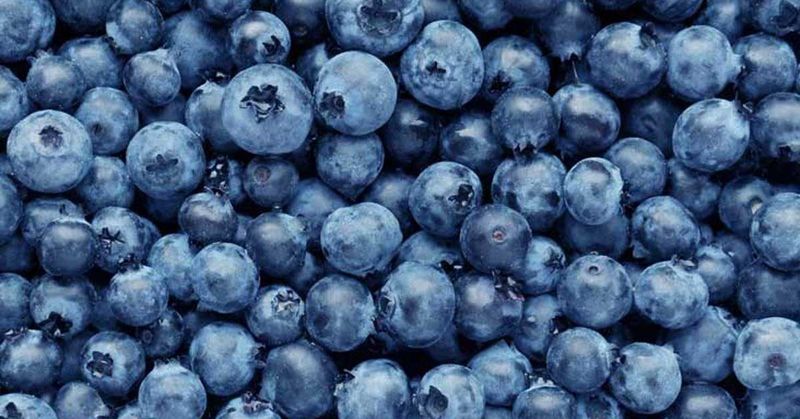
Blueberries are little antioxidant powerhouses, packing a punch in both flavor and nutrition. Low in sugar and high in fiber, they’re versatile enough to enhance anything from oatmeal to smoothies. Their benefits extend beyond taste; they also support heart health and cognitive function. Enjoy them fresh or frozen, and consider adding them to your breakfast or desserts for a nutritious boost. This tiny fruit proves that some of the best things come in small packages, offering both health benefits and delightful flavor.
12. Raspberries

Raspberries are a fiber lover’s dream, offering one of the highest fiber contents among fruits. Their naturally low sugar levels make them a top choice for those seeking a sweet fix without the sugar spike. Add them to yogurt, cereals, or salads for a nutritional boost. Raspberries also boast antioxidants like vitamin C, which aid in overall health and immune support. With their tart yet sweet flavor, they bring a refreshing taste to any dish, making them a delightful and health-conscious choice.
13. Apples (with the skin)
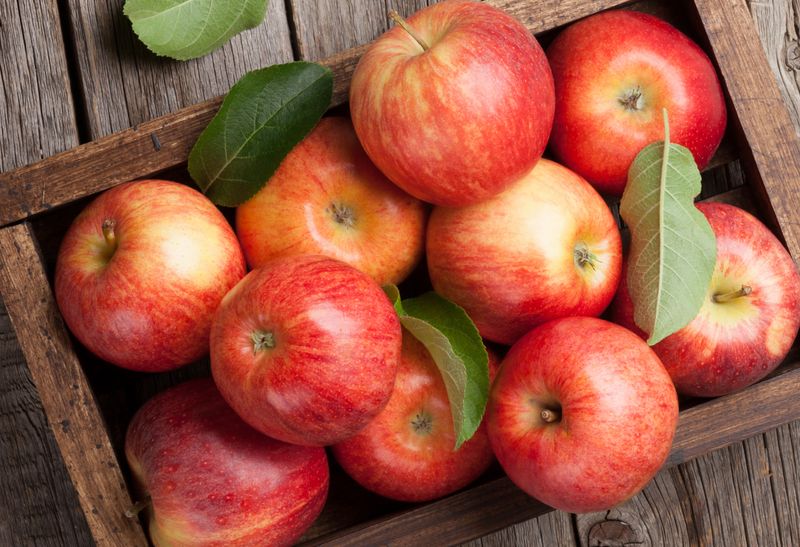
Apples, especially when enjoyed with their skin, offer a crisp and filling snack full of fiber. The skin contains much of the fruit’s nutrients, including antioxidants that support heart health. Slices can be effortlessly added to salads or eaten with nut butter for a satisfying snack. Their natural sweetness is balanced by the fiber, making them a smart choice for those looking to manage weight or blood sugar. With a refreshing crunch and versatility, apples are a staple in many healthy diets worldwide.
14. Avocados
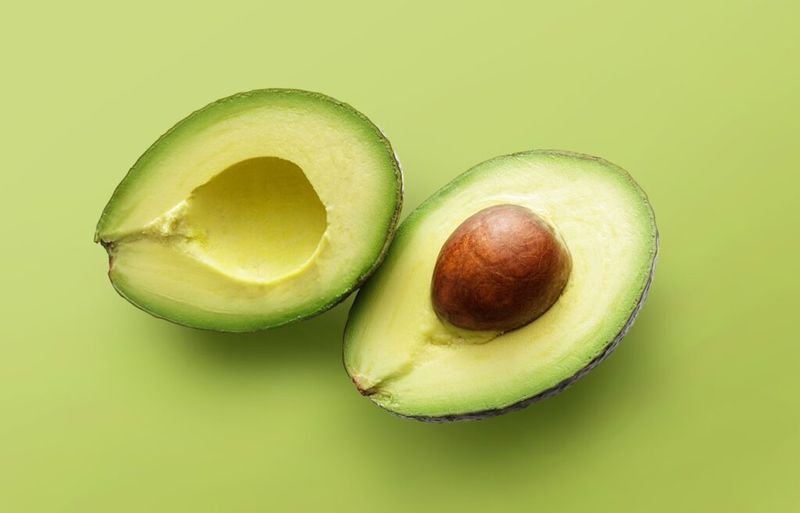
Technically a fruit, avocados are rich in healthy fats and fiber, making them a superb addition to any diet. Their creamy texture and subtle flavor complement a wide range of dishes, from salads to smoothies. Plus, they are naturally low in sugar. Avocados are packed with nutrients like potassium and vitamins E and K, supporting heart and skin health. As a versatile ingredient, they can be spread on toast or blended into guacamole, making them a beloved staple for health enthusiasts and food lovers alike.
15. Kiwi

Kiwis are tangy little fruits that pack a punch with their high vitamin C content and fiber. Surprisingly, the skin is edible, offering additional nutrients if you can handle its texture. These fruits support digestion and immune function, making them a valuable addition to any diet. Slice them into salads or enjoy them as a refreshing snack on their own. Their unique flavor and nutritional profile make kiwis a standout choice for those seeking something different yet beneficial in their fruit selection.
16. Pears

Pears, with their subtle sweetness and juicy texture, offer a satisfying and nutritious bite. Keeping the skin on increases their fiber content, aiding digestion and promoting a feeling of fullness. They’re a great choice for snacks or dessert, providing a natural sweetness with health benefits. The versatility of pears allows them to be poached, baked, or eaten fresh, making them perfect for various culinary uses. They are a delightful fruit that brings both flavor and nutrition to your table.
17. Grapefruit

Grapefruit is known for its tart and tangy flavor, offering a refreshing start to the day. Low in sugar yet high in vitamin C, it supports immune health and hydration. However, those on certain medications should be cautious, as grapefruit can interact with them. Enjoy it as a standalone fruit or squeeze it into juices for an invigorating drink. Its unique flavor profile makes grapefruit a popular choice for those seeking a healthier fruit option with a citrusy twist.
18. Oranges (whole, not juiced)

Whole oranges are a classic fruit choice, offering a balance of sweetness and nutrition. Unlike their juiced counterparts, eating whole oranges provides fiber, which aids in digestion and moderates sugar absorption. They’re perfect as a snack or in fruit salads, supporting immune function with their high vitamin C content. The act of peeling and enjoying each segment makes them a satisfying and mindful eating experience. Choosing whole oranges over juice is a simple yet effective way to enjoy better nutrition.
19. Pomegranate seeds
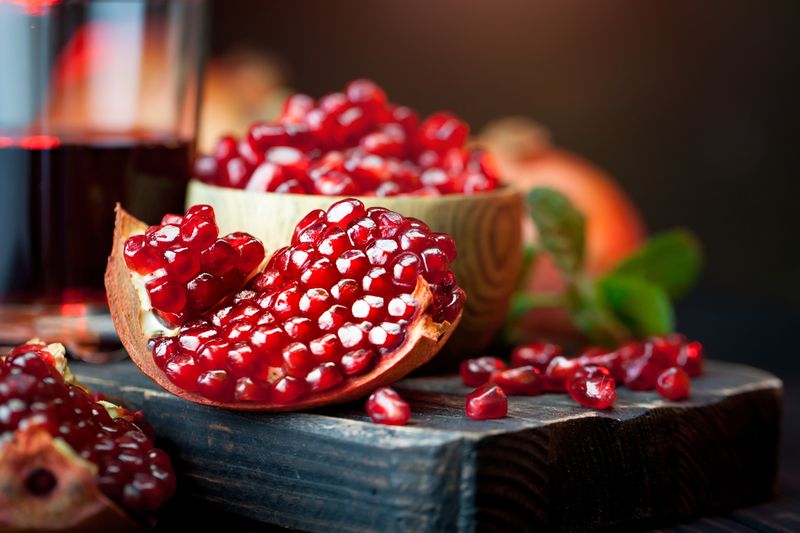
Pomegranate seeds are both tart and crunchy, offering a unique texture and burst of flavor. Rich in antioxidants, they support heart health and provide anti-inflammatory benefits. Sprinkle them on salads, yogurt, or desserts for an added nutritional punch. Their vibrant color and distinct taste make them a favorite for both culinary and health-conscious purposes. Pomegranate seeds are a delightful way to enhance dishes, marrying taste with nutrition in every bite.
20. Plums
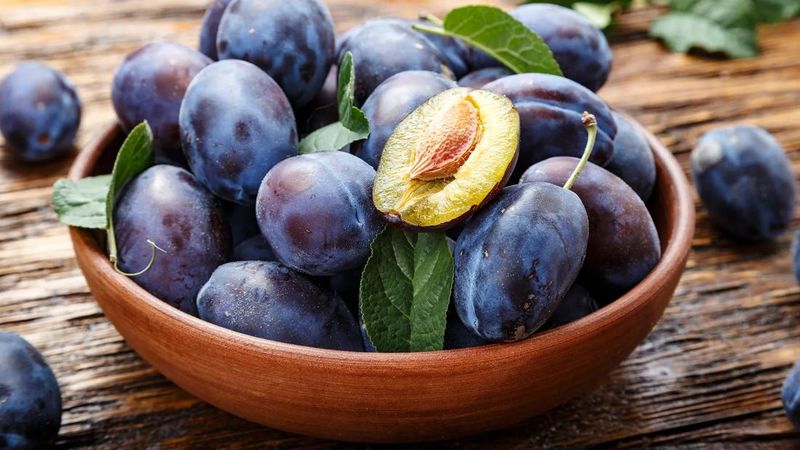
Plums are sweet yet balanced, offering fiber and antioxidants that support digestion and overall health. They are a versatile fruit, enjoyable fresh, dried, or cooked into dishes. Their natural sweetness makes them a great addition to desserts or breakfast cereals. Prunes, dried plums, are particularly known for aiding digestion. Whether eaten on their own or as part of a recipe, plums provide a satisfying taste with numerous health benefits. They are a classic choice for those seeking both flavor and nutrition.
